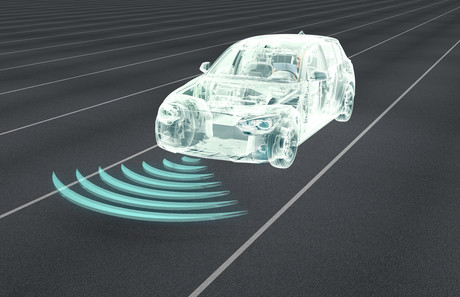Toyota to release autonomous vehicles in 2020

Semiconductor supplier Renesas Electronics has announced that its automotive technologies will drive Toyota’s autonomous vehicles, which are presently under development and scheduled for commercial launch in 2020.
Selected by Toyota and automotive components manufacturer Denso, Renesas’s autonomous-driving solution combines the R-Car system-on-chip (SoC) and the RH850 microcontroller (MCU), delivering a comprehensive semiconductor solution that covers peripheral recognition, driving judgements and body control. Together, they will be utilised in Toyota’s ‘Highway Teammate’, an autonomous-driving prototype car designed to merge, pass, change lanes and perform other actions during highway driving, under supervision.
“To achieve a society where mobility means safety, efficiency and freedom, Toyota is constantly seeking out the latest technology and selecting systems incorporating the very best devices and materials,” said Ken Koibuchi, executive general manager at Toyota. “We are partnering with Denso and Renesas, who bring superior technology and expertise to this project, with the aim to accelerate the development of autonomous-driving vehicles and encourage early adoption.”
The R-Car SoC has been selected for Denso’s engine control unit (ECU), where it will function as the electronic brain for the autonomous-driving system. The product is expected to provide highly accurate intelligence on the vehicle’s position within its environment, making real-time decisions on vehicle control and active safety manoeuvres based on sensor data.
“We are collaborating with Renesas to develop an ECU, the so-called electronic brain, for use in Toyota’s autonomous-driving vehicle,” said Denso Executive Director Hajime Kumabe. “We will maximise our sophisticated system design and software development capabilities by leveraging Renesas’s high-performance semiconductor devices to realise a highly reliable ECU system for autonomous-driving vehicles.”
The RH850 was meanwhile selected to control driving, steering and braking functions based on the judgements made by the R-Car SoC. The combination is said to provide a good balance between performance and power consumption, serving as a comprehensive autonomous-driving solution with high reliability.
“We are delighted that Toyota and Denso have selected Renesas’ high-performance automotive semiconductor devices for use in the autonomous-driving vehicle they are developing for commercial release,” said Renesas Executive Vice President Ryuji Omura. “Renesas introduced the Renesas autonomy platform earlier this year as an open, innovative and trusted platform for the autonomous driving era, to accelerate the development of self-driving vehicles for consumer adoption.”
Renesas is committed to strengthening its solutions for autonomous-driving vehicles and plans to contribute to making ADAS and autonomous-driving systems available for all types of vehicles — from entry- to high-level models.
3D semiconductor chip alignment boosts performance
Researchers have developed an ultra-precise method to align 3D semiconductor chips using lasers...
Researchers achieve 8 W output from optical parametric oscillator
Researchers have demonstrated a total output power of 8 W from a high-power mid-infrared cadmium...
"Dualtronic" chip for integrated electronics and photonics
Cornell researchers have developed a dual-sided chip known as a "dualtronic" chip that...






